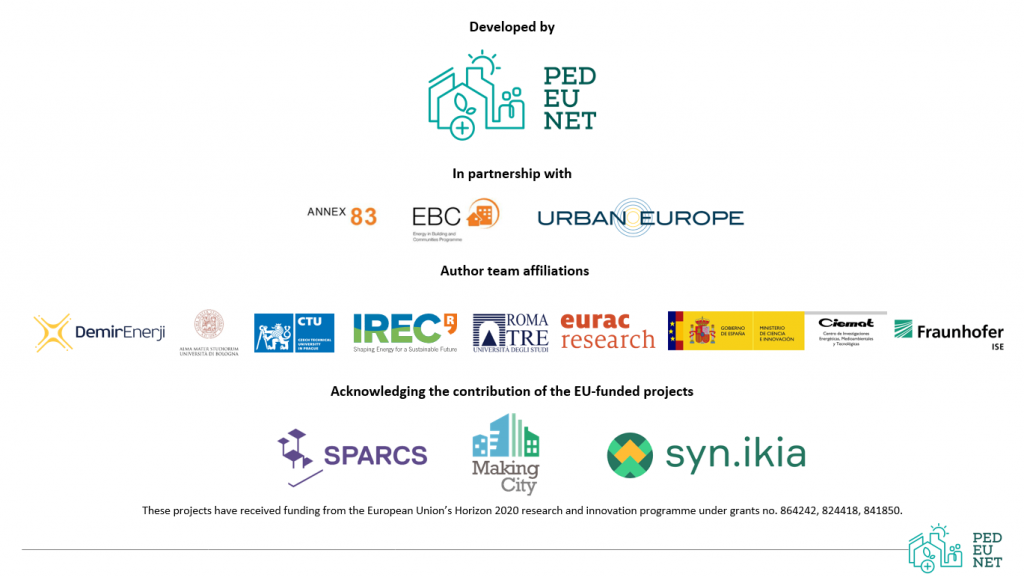| D1P001: Name of the project | |
| D1P001: Name of the project | ZEN - Research Centre on Zero Emission Neighbourhoods in Smart Cities |
| D1P002: Project assigned code | |
| D1P002: Project assigned code | |
| D1P003: Start date | |
| D1P003: Start date | 06/17 |
| D1P004: End date | |
| D1P004: End date | 09/24 |
| D1P005: Ongoing project | |
| D1P005: Ongoing project | Yes |
| D1P006: Funding programme/financing model | |
| FP7/H2020/HEU/DUT | no |
| Interreg | no |
| National funding | yes |
| National funding | Research council of Norway together with project`s partners |
| Public-Private Partnership - please specify | no |
| Other | no |
| D1P007: Estimated project costs (Mill. €) | |
| D1P007: Estimated project costs (Mill. €) | 36 |
| D1P008: Description of project objectives/concepts | |
| D1P008: Description of project objectives/concepts | The ZEN Research Centre develops solutions for future buildings and neighbourhoods with no greenhouse gas emissions and thereby contributes to a low carbon society. In order to achieve its high ambitions, the Centre will, together with its partners: • Develop neighbourhood design and planning instruments while integrating science-based knowledge on greenhouse gas emissions; • Create new business models, roles, and services that address the lack of flexibility towards markets and catalyze the development of innovations for a broader public use; This includes studies of political instruments and market design; • Create cost effective and resource and energy efficient buildings by developing low carbon technologies and construction systems based on lifecycle design strategies; • Develop technologies and solutions for the design and operation of energy flexible neighbourhoods; • Develop a decision-support tool for optimizing local energy systems and their interaction with the larger system; • Create and manage a series of neighbourhood-scale living labs, which will act as innovation hubs and a testing ground for the solutions developed in the ZEN Research Centre. |
| D1P009: Description of project upscaling strategies/potential | |
| D1P009: Description of project upscaling strategies/potential | Researchers, municipalities, industry and governmental organizations work together in the ZEN Research Centre in order to plan, develop and run neighbourhoods with zero greenhouse gas emissions. The partner will use their experience and knowledge in new projects. New business models, roles, and services will address the market and development innovations for a broader public use. Spin-off projects from ZEN were generated to further develop the concepts, e.g the HE project Syn.ikia and the Green Deal project ARV - Climate Circular Positive Communities. |
| D1P010: Number of PED case studies in the project | |
| D1P010: Number of PED case studies in the project | 9 |
| D1P011: Case Study | |
| D1P011: Case Study | |
| D1P012: Description of project expected impact | |
| D1P012: Description of project expected impact | |
| D1P013: Standardization efforts | |
| D1P013: Standardization efforts | A list of indicators is available in the ZEN Definition and ZEN defintion guideline (link posted below). ZEN assesses a variety of KPI`s under the categories GHG emissions, Energy, Power, Urban Form, Economy, and Mobility. There is an ongoing national standardization work considering the ZEN definition. |
| D1P014: Sources | |
| D1P014: Sources |
|
| D1P015: Can you specify a suitable contact person regarding the load-management approach within your PED project? | |
| Name | Judith Thomsen |
| judith.thomsen@sintef.no | |
| D1P016: Would you be willing to share data from your PED project for research purposes? | |
| D1P016: Would you be willing to share data from your PED project for research purposes? | Yes |

Authors (framework concept)
Beril Alpagut (Demir Energy); Giulia Turci (University of Bologna); Michal Kuzmic (Czech Technical University in Prague); Paolo Civiero (Università Roma Tre); Serena Pagliulia (University of Bologna); Oscar Seco (CIEMAT); Silvia Soutullo (CIEMAT); Daniele Vettorato (EURAC Research, IEA Annex 83); Bailador Ferreras M. Almudena (CIEMAT); Vicky Albert-Seifried (FHG ISE)
Contributors (to the content)
Laura Aelenei (LNEG), Nienke Maas (TNO), Savis Gohari (OsloMet), Andras Reith (ABUD), Ghazal Etminan (AIT), Maria-Beatrice Andreucci (Universita Sapienza), Francesco Reda (VTT, IEA Annex 83), Mari Hukkalainen (VTT), Judith-Borsboom (Locality), Gilda Massa (ENEA), Jelena Ziemele (University of Latvia), Nikola Pokorny (CVUT), Sergio Diaz de Garayo Balsategui (CENER, IEA Annex 83), Matthias Haase (ZHAW, IEA Annex 83), Christoph Gollner (FFG, JPI UE), Silvia Bossi (ENEA, JPI UE), Christian Winzer (Zurich University of Applied Science), George Martinopoulos (Centre for Research and Technology Hellas), Maria Nuria Sánchez (CIEMAT), Angelina Tomova (Energy Agency of Plovdiv), Oya Tabanoglu (Demir Enerji), Jelena Brajković (University of Belgrade), Juveria Shah (Dalarna University), Michela Pirro (ENEA), Francesca Sabatini (University of Bologna)
Implemented by
Boutik.pt: Filipe Martins, Jamal Khan
Marek Suchánek (Czech Technical University in Prague)